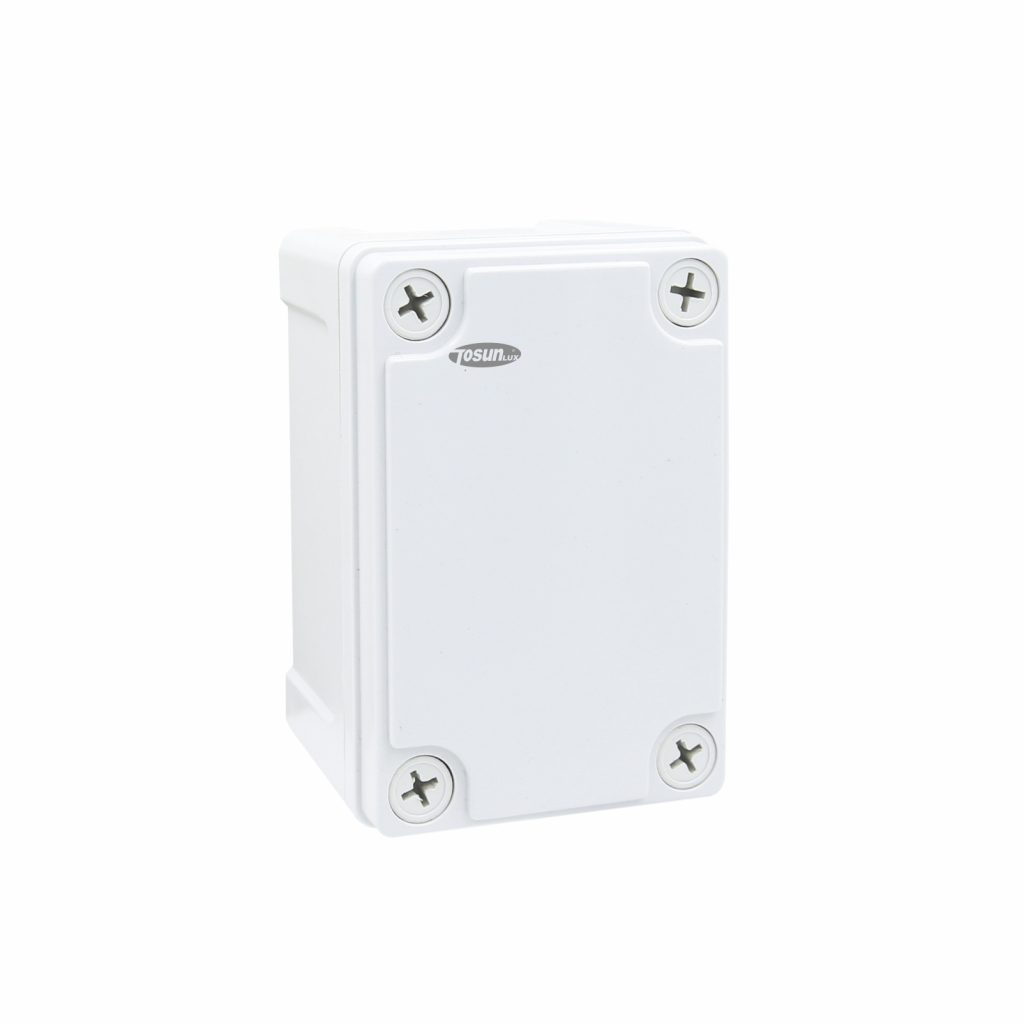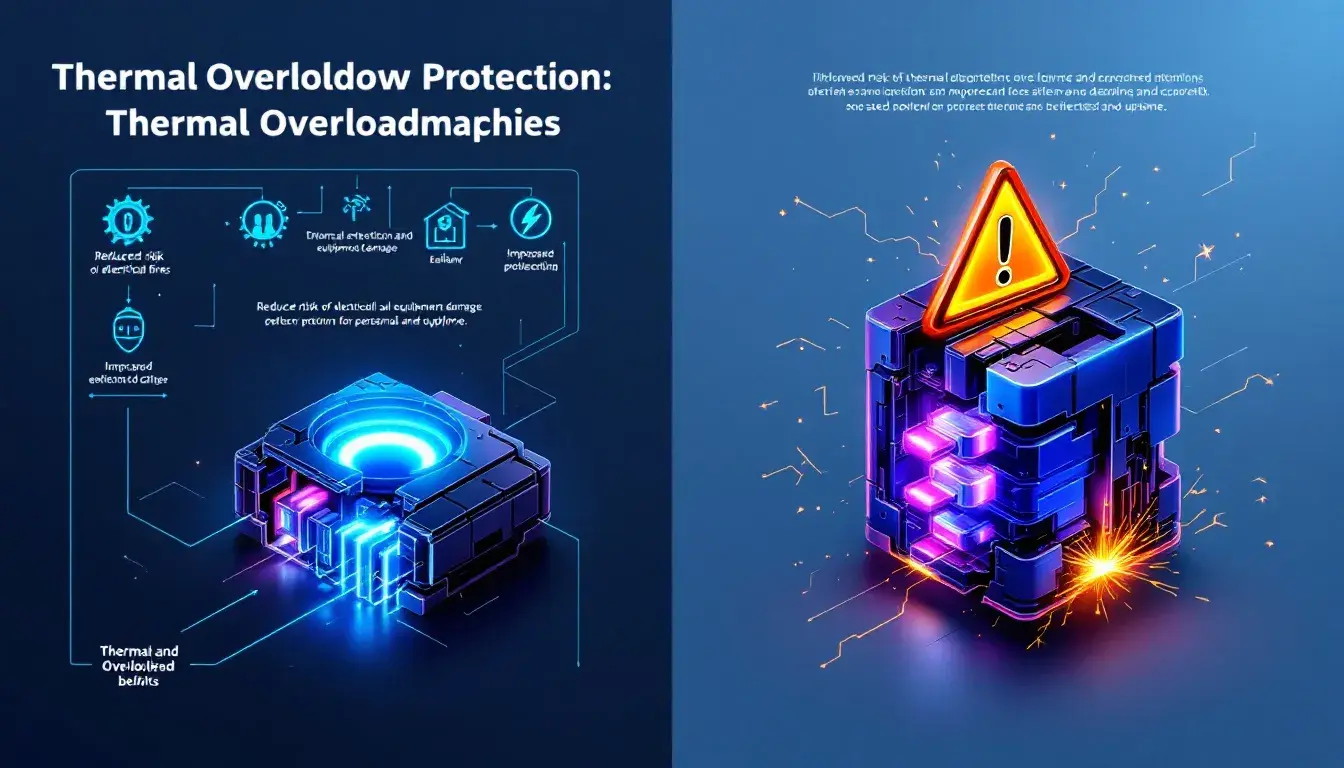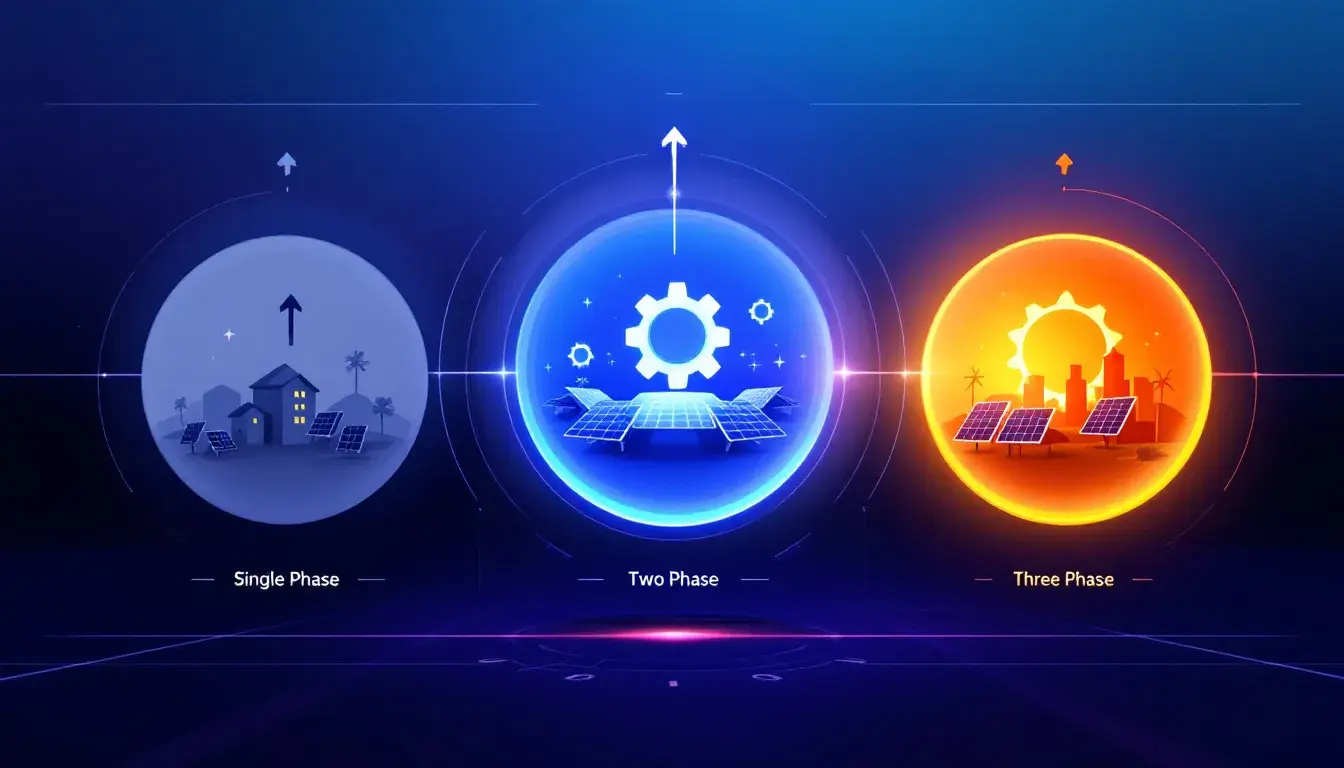Junction Box vs. Terminal Box: What’s The Difference?
Table of Contents
ToggleKnowing the difference between junction boxes and terminal blocks helps you pick the right tool for electrical projects. Both organize and protect connections, but each has unique purposes, benefits, and limitations.
Key Differences Between Junction Boxes and Terminal Blocks
| Feature | Junction Box | Terminal Block |
| Primary Purpose | Connects multiple wires | Organizes complex connections within circuits |
| Size and Space | Varies; can be larger, for wire protection | Compact and modular, often installed on DIN rails |
| Installation | Simple, suited for direct wiring | Neat, structured for organized wiring setups |
| Future Expansion | Limited expansion | High; modular blocks allow easy additions |
| Environment | Indoor or outdoor | Mainly indoor within control panels |
What Is A Junction Box?

A junction box is used to join two or more electrical wires together. These boxes are designed to be small and easy to install in a home. There are different types of junction boxes depending on the size and number of wires in the room. Some are designed for domestic use, while others are huge and are used for commercial wiring.
Firstly, a junction box is a metal or plastic box that houses the connections between the circuits. It protects the connections from vandalism and is essential to any electrical setup. You’ll find them inside and outside of any major building. There are also wall-mounted boxes and ceiling-mounted ones. In both cases, the junction box is a critical part of the electrical setup and is used for many different purposes.
Advantages of Junction Box
The advantages of a junction box outweigh the disadvantages. A junction box comes in a variety of materials. Fiberglass is a good choice if your circuitry is exposed to dust or moisture. ABS is strong and cheap plastic. And because it is non-conductive, it doesn’t require grounding. The advantages of an ABS-based enclosure are numerous, and the cost of an ABS-based one can be even less than a metal one. The best part about these boxes is that they come in so many sizes and shapes.
Another advantage of a junction box is that it can be customized to fit the specific needs of the installation. The design can be made from different materials, depending on the location of the box.
Each individual junction box designates a different area of wiring, making it easier for electricians to install electrical equipment. Without a proper junction, electricians would face a much harder time installing new wiring and repairing old ones. A junction box is also an excellent safety measure against fire.
As junction box is easy to install. Anyone with basic electrical knowledge can handle a junction box. Another benefit is that they can be easily expanded. You can add more connections in the same junction box. There is no need to buy a separate box for additional connections. This box can handle grounding very well, which is one of the biggest benefits. It offers a good safety feature.
Disadvantages of Junction Box
The biggest drawback is that they are bulky and expensive. There are several different types of junction boxes, each with different advantages and disadvantages. However, some types of junction boxes are prone to corrosion and damage, so you need to invest in maintenance.
Some disadvantages of a junction box include the fact that the electrical wiring within the building is not as organized as it could be. Another limitation is that they lack internal blocks. Because of this reason, the number of connections is limited. For example, in most of the residential junction boxes, you can add only three connections.
What Is A Terminal Box?
A terminal box is an electrical component that connects two or more wires. It is often used to keep electrical components safe and comes in many forms. Some terminal blocks have spring clamping, while others are push-in. The most common type is a round or square box. The boxes are generally made of copper alloy, which has the same expansion coefficient as wires, so they don’t break or warp and allow current to flow between two sources.
There are different types of terminal blocks. General-purpose terminal blocks are the most common type and are used for a variety of applications. They can be used for power distribution, I/O, and motor connections. Other types are designed for a specific purpose, such as grounding.
Advantages of Terminal Box
A terminal box is a connector that is designed to fit into a small space. It can be a cost-effective option compared to other types of connectors and can help you avoid rewiring your entire system later. A terminal block can also save time compared to other types of connected devices because it makes connecting the wires much easier. However, a terminal block is only suitable for essential wiring.
One of the main benefits of a terminal block is its quick and easy installation. Another advantage is that it is designed to fit many wires. This makes it suitable for large interconnections. Another advantage of a terminal block is that it’s inexpensive compared to other connectors. It also saves time. Since you can connect two wires using the same terminal block, you won’t need to worry about rewiring the device.
A terminal box offers safety as you can easily ground the wires nicely in the box. It comes with killer switches as well as finger connections for additional safety.
Disadvantages of Terminal Box
It is relatively cheap compared to other connectors. But the downside is that you’ll spend more time setting up wires. You might lose a wire or two while jostling. The terminal block can be too large for some spaces, so it may be a good choice for smaller areas. In addition, terminal blocks are more costly than a standard electrical outlet.
Unlike a plug-in connector, a terminal block does not come with a cover. You can’t use a terminal without sealing it against moisture or vapor. You can’t use the terminal block as a portable device because it’s too big for its space. On top of that, a terminal box cannot be expanded.
FAQ
What is a junction box used for?
A junction box connects multiple wires and protects them from dust and moisture.
What is a terminal block used for?
A terminal block organizes complex connections, often used in industrial setups.
Which is better for expansion?
Terminal blocks are better for expansion due to their modular design.Are they suitable for outdoor use?
Junction boxes are common outdoors, while terminal blocks are typically used indoors within control panels.
Tel: +86-577-88671000
E-mail: ceo@tosun.com
Skype: tosunelectric
Wechat: +86-139 6881 9286
WhatsApp: +86-139 0587 7291
Address: Room No.1001 Wenzhou Fortune Center,Station Road, Wenzhou, China
REQUEST A QUOTE
WhatsApp us
 : +86-139 0587 7291
: +86-139 0587 7291 English
English Español
Español Русский
Русский Français
Français العربية
العربية Português do Brasil
Português do Brasil Українська
Українська Türkçe
Türkçe Polski
Polski Nederlands
Nederlands Italiano
Italiano Bahasa Indonesia
Bahasa Indonesia हिन्दी
हिन्दी اردو
اردو አማርኛ
አማርኛ Հայերեն
Հայերեն ไทย
ไทย Монгол
Монгол فارسی
فارسی Shqip
Shqip Ελληνικά
Ελληνικά


